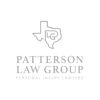-
About
- About Listly
- Community & Support
- Howto
- Chrome Extension
- Bookmarklet
- WordPress Plugin
- Listly Premium
- Privacy
- Terms
- DMCA Copyright
- © 2010-2025 Boomy Labs

 Patterson Law Group
Patterson Law Group
Listly by Patterson Law Group
Personal injury law refers to the legal remedies and defenses involved in civil lawsuits brought as a result of wrongful conduct. In fact, the word “tort” comes from a Latin term meaning twist, wrong, or harm. In contrast to criminal law, a tort action does not involve the government prosecuting the wrongdoer. Rather, these cases involve a private plaintiff seeking compensation (usually money) for the harm caused by the defendant’s actions.
Most personal injury cases are based on the doctrine of negligence. In essence, negligence requires every member of society to act responsibly and avoid putting others at risk. That is not to say that negligence will result each time someone gets hurt. The doctrine recognizes that some accidents are unavoidable. To establish liability, the plaintiff must show that a reasonably prudent person in the defendant’s position would have acted differently under the circumstances.
Below is a list of examples of negligence including car accidents caused by drunk drivers, medical complications resulting from a physician’s carelessness, and dog bites that occur when vicious animals are permitted to roam free. In each instance, the responsible party ignored the risk posed to others, and as a result, the plaintiff was injured.

Not much out there can abruptly disrupt your day-to-day life more than a car wreck. You’re going about your business just like every other day and then somebody slams into you because he was in a hurry, or more likely, he was sending that text that just couldn’t wait. All of a sudden, on top of dealing with the normal stresses of everyday life, you now have both medical and legal hurdles to clear. Car accidents can range from devastating multi-car pileups to fender benders with delayed soft tissue injuries.

"Slip and fall" is a term used for a personal injury case in which a person slips or trips and is injured on someone else's property. These cases usually fall under the broader category of cases known as "premises liability" claims.
Truck drivers and manufacturers are held to higher standards than most other drivers, so if something goes wrong, the driver or the truck company may reimburse you for your injuries.

Unfortunately, not all day care facilities provide safe and nurturing care for young children, and when neglect or child abuse threatens the health and safety of a child, their parents may have the legal right to pursue damages in a lawsuit.
Pedestrians are a particularly vulnerable segment of traffic, which is why motorists must yield to people crossing the street or crossing the paths of automobiles. As with any other traffic accident, liability for pedestrian accidents is based on negligence. Although motorists do tend to take the blame for many accidents of this type, pedestrians can still be liable under a doctrine called “contributory negligence.”

Bicycle accidents can result in serious and sometimes fatal injuries. Lawsuits to recover damages for injuries in bicycle accidents with automobiles involve many of the same issues as any auto accident lawsuit. Liability for bike accident injuries often comes down to negligence -- whether the car driver's negligence caused the cyclist's injuries, and whether any negligence by the cyclist caused or contributed to the accident.
Motorcycles can be particularly dangerous vehicles and motorcycle accidents can touch on many areas of law, such as product liability, personal injury, and property rights.

[Nursing home abuse law deals with the civil, criminal, and regulatory standards for the unlawful treatment of elderly people by care facility staff and administrators. When a nursing home fails to meet these standards, it can be sanctioned in a variety of ways. These include forced changes to operating procedures, loss of government funding, license suspension or revocation, and the imposition of monetary damage awards.
From the standpoint of victims and those interested in pursuing legal claims on their behalf, the most powerful form of legal recourse is a negligence lawsuit. Most nursing homes are run by corporations or other business entities primarily concerned with making a profit. As detached as the owners may be, a large negligence verdict or settlement is sure to get their attention and lead to positive changes at the facility. It also provides needed compensation for the victim.
Recognizing the Signs of Abuse or Neglect
Perhaps the most tragic aspect of nursing home abuse law is the fact that the majority of legal violations are never reported. Victims may fail to make a report because they have no practical means of doing so, or out of fear of retribution from their abusers. In some cases, victims may not even be cognizant of the situation due to their condition or advanced age. Thus, it is often up to family members and visitors to discover the problem and take action.
Abuse in a nursing home environment will take one of two forms. The first involves the condition of the facility. Generally speaking, the building and grounds must be safe, clean, and properly equipped. Residents must have access to nutritious meals, social services, recreational activities, medications, and onsite emergency care. Staff must be well-trained and present in sufficient numbers at all times. Finally, the home should be designed and maintained to prevent slip and falls – the leading cause of nursing home injuries.
The second form of abuse involves the conduct of employees. Abuses of this kind may be physical, sexual, emotional, or financial. In some cases, visitors will notice lacerations, bruising, bed sores, dehydration, sudden weight gain or loss, sanitary concerns, or other such manifestations. Other times the results of abuse or neglect will be less obvious. The victim may simply appear depressed or withdrawn. When visiting a loved one, be sure to ask questions, check financial records, and investigate suspicious circumstances. ](https://www.hg.org/nursing-home-abuse.html)
